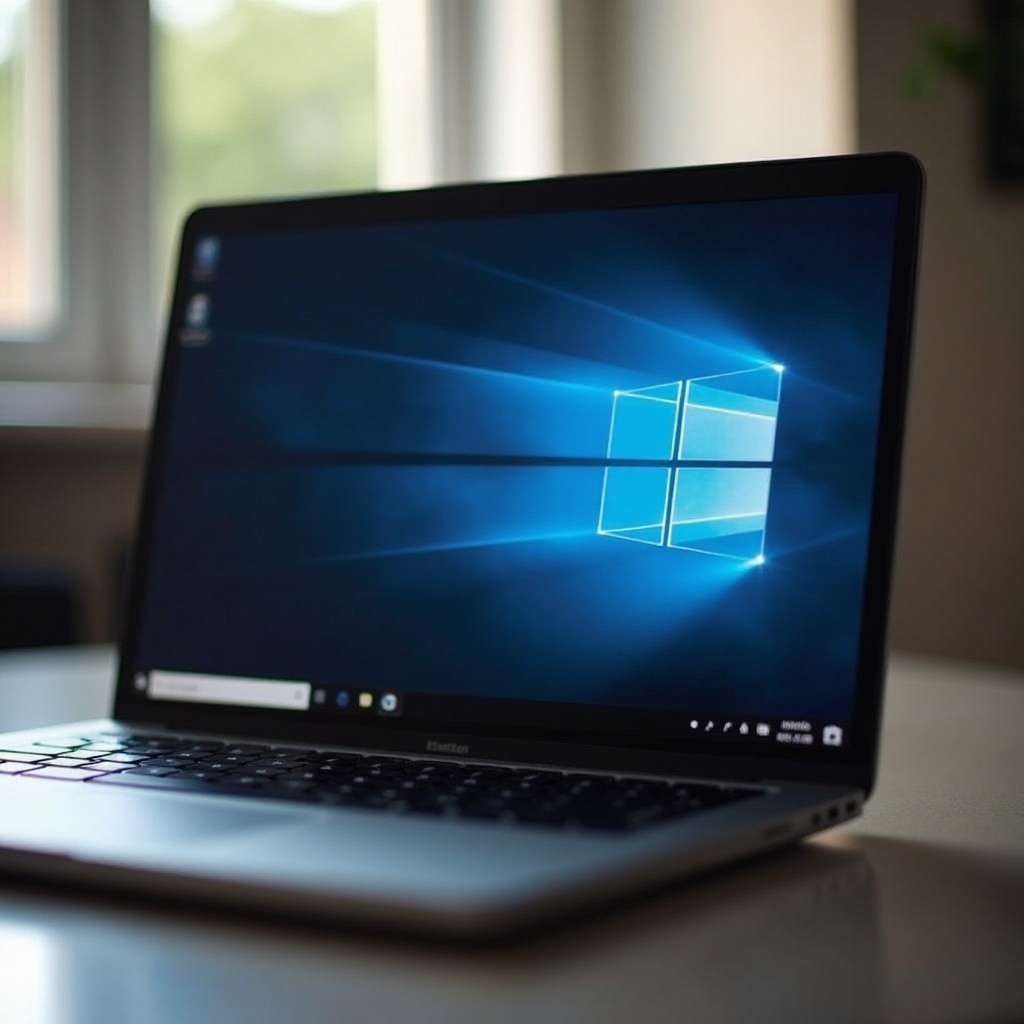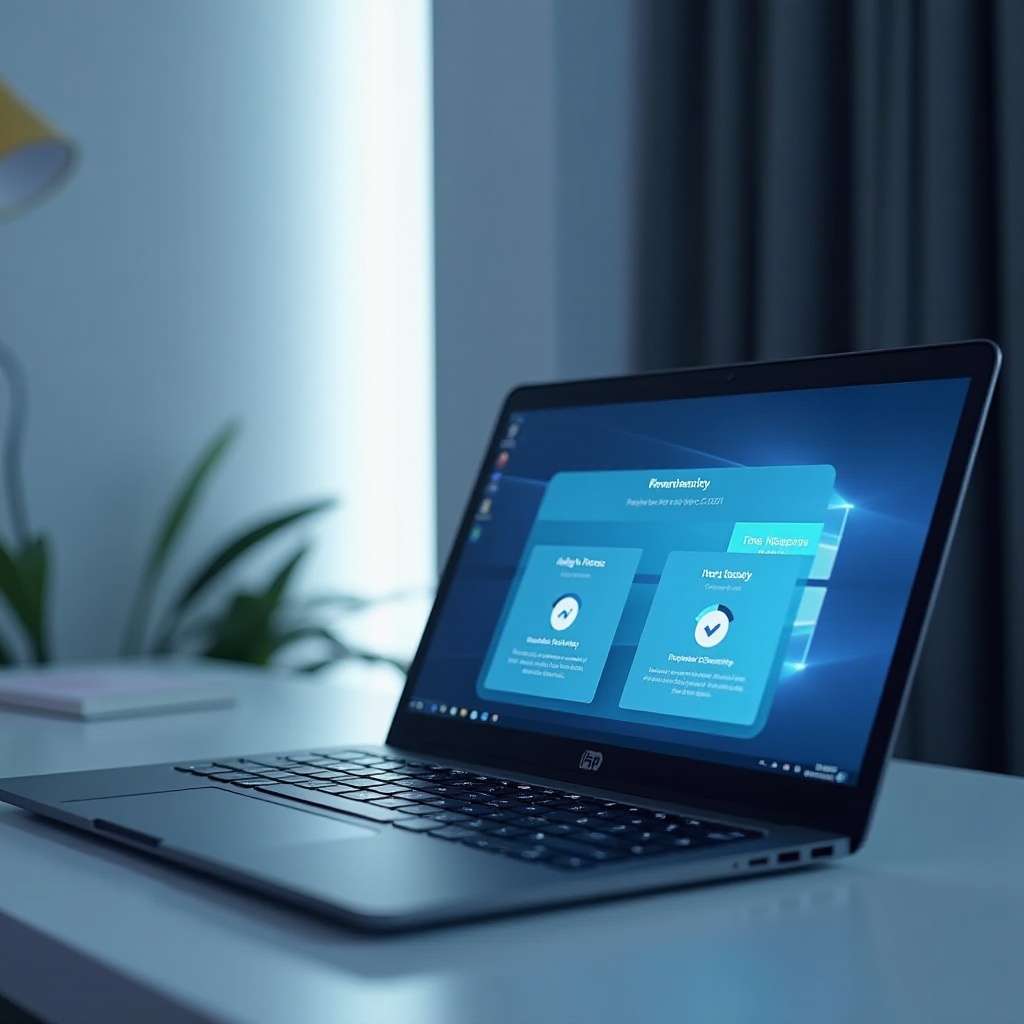Introduction
Experiencing a slow boot-up on your HP laptop can be incredibly frustrating, especially when you have tight schedules and deadlines. As technology advances, our need for speed becomes more critical, whether we’re working remotely or traveling. In this guide, we delve into various software and hardware solutions to help you resolve sluggish startup times on your HP laptop in 2024. Our aim is to provide practical tips to enhance your laptop’s performance, improving both productivity and your overall user experience.

Common Causes of Slow Boot-Up on HP Laptops
Understanding the root of slow boot times is key to finding a solution. Several factors could be contributing to your HP laptop’s delayed startup. By pinpointing these causes, you can more effectively target your solutions and monitor the boot sequence of your laptop.
-
Excessive Startup Programs: Numerous applications may set themselves to start when you log in, which can cause delays.
-
Outdated Software and Drivers: Incompatibility between outdated systems or drivers and newer applications often leads to a lag in performance.
-
Fragmented Hard Drives: Over time, files on a hard drive can become fragmented, resulting in longer load times during startup.
-
Insufficient Hardware Resources: A lack of adequate RAM or an outdated hard drive can lead to significant delays since these components are crucial for processing capabilities.
Identifying these specific causes enables you to monitor your laptop’s startup more effectively and apply the right solutions.

Software Solutions to Speed Up Boot Time
With potential causes identified, let’s explore software solutions designed to improve your HP laptop’s boot time and overall performance.
Disabling Unnecessary Startup Programs
Speeding up boot times starts with minimizing the number of programs launching at startup.
- Open the Task Manager using Ctrl + Shift + Esc.
- Go to the ‘Startup’ tab.
- Disable non-essential programs by right-clicking and selecting ‘Disable.
Updating Your Operating System and Drivers
Ensure that your software and drivers are up-to-date to maintain optimal performance.
- Navigate to Settings > Update & Security > Windows Update for Windows updates.
- Use Device Manager to update system drivers.
Running Disk Clean-Up and Defragmentation
Cleaning and organizing disk data can significantly influence boot speed.
- Use Disk Cleanup by typing it into the search bar and selecting files to remove.
- Execute Disk Defragmenter by typing ‘defragment’ into the search bar and follow prompts to optimize your drive.
By implementing these software changes, you can rejuvenate your HP laptop’s performance, thus reducing delays during the boot process.

Hardware Solutions for Faster Boot Speeds
While software adjustments can address many issues, persistent slow booting may require hardware upgrades.
Upgrading to a Solid State Drive (SSD)
Switching from a traditional HDD to an SSD can vastly increase boot speed due to faster data access.
- Buy a reputable SSD with suitable storage capacity.
- Perform a clean installation of the OS on your new SSD.
Increasing RAM for Better Performance
More RAM can help handle data more efficiently and decrease processing time during boot.
- Check your available RAM through Task Manager under ‘Performance.
- Purchase compatible memory sticks and install them in open slots.
Evaluating and Replacing Faulty Components
Defective hardware may hinder boot-up times.
- Use HP’s diagnostic tools to identify any hardware issues.
- Replace faulty components like batteries or cooling fans that may contribute to overheating and sluggish performance.
Hardware enhancements are crucial for boosting your HP laptop’s boot speed and ensuring it runs efficiently.
Advanced Troubleshooting Techniques
If slow booting persists, consider advanced troubleshooting approaches to identify deeper issues.
Performing a Clean Boot
A clean boot can help isolate startup issues.
- Enter ‘msconfig’ in the search bar and open System Configuration.
- Under Services, check ‘Hide all Microsoft services’ and disable others.
- Restart to run the system with minimal drivers and startup programs.
Using Safe Mode to Identify Issues
Safe Mode loads only essential drivers and can point out issues slowing down boot time.
- Restart and press F8 to access the Advanced Boot Options screen.
- Select ‘Safe Mode’ to troubleshoot faulty programs or drivers.
Running System File Checker (SFC) and DISM
These tools can repair corrupted files affecting performance.
- Open Command Prompt as an administrator.
- Type ‘sfc /scannow’ and complete the process.
- Use additional DISM commands like ‘DISM /Online /Cleanup-Image /RestoreHealth’ to further repair system issues.
Employing these strategies will target underlying problems to restore swift boot-up times effectively.
Preventative Maintenance Tips for Sustained Performance
Regular maintenance is vital for sustaining optimal performance. Here are tips to prevent sluggish boot times:
- Keep your OS and drivers updated to avoid compatibility problems.
- Conduct regular virus and malware scans with protective software.
- Limit unnecessary program installations that could slow boot-up.
- Maintain an organized desktop and effective file management.
Following these preventative practices ensures your HP laptop stays efficient, minimizing the return of boot-up delays.
Conclusion
Achieving speedy boot times on a slow HP laptop is possible with a combination of software enhancements and hardware upgrades. By managing startup programs, conducting advanced troubleshooting, and maintaining regular upkeep, these tactics ensure your HP laptop delivers enhanced performance in 2024 and beyond. Commitment to regular maintenance will keep your device running smoothly and efficiently, free from the frustration of delays.
Frequently Asked Questions
Why does my HP laptop take so long to boot up?
Several factors can cause slow boot times, such as excessive startup programs, outdated software, fragmented hard drives, or insufficient hardware resources.
How can I check if hardware issues are causing slow boot times?
Run hardware diagnostics using HP’s built-in tools to identify potential problems like overheating, excessive noise, or unresponsiveness.
Is upgrading to an SSD really going to improve boot speed significantly?
Yes, SSDs offer faster data access rates compared to traditional HDDs, resulting in noticeably quicker boot speeds.
